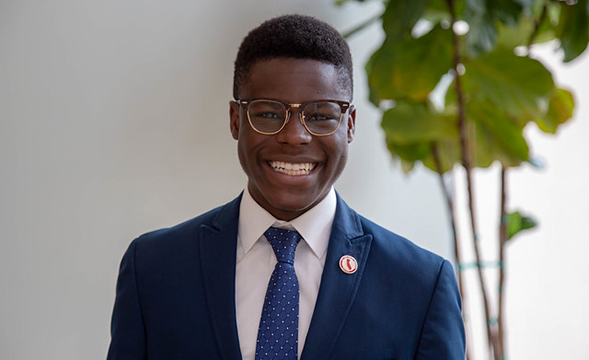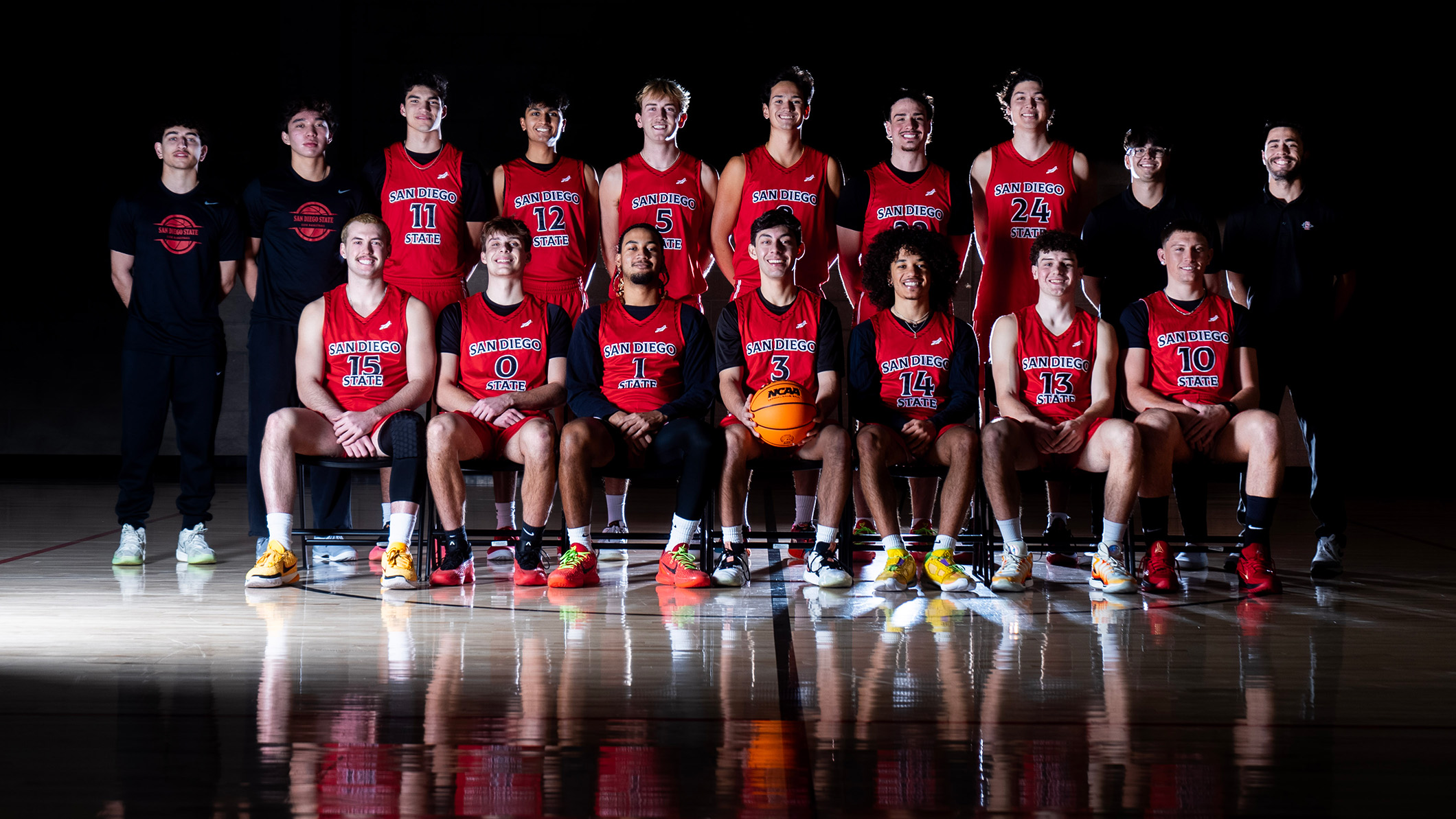Mr. President
SDSU senior Michael Wiafe is the president of the Cal State Student Association.

It’s a daunting proposition when you think of it: being 20 years old and asked to lead an organization that is the official voice of a group whose membership size places it among the 50 largest cities in the United States.“Those are two positions I know I can make a huge difference for the communities I will be able to represent.”
For Michael Wiafe, a San Diego State University senior majoring in political science, this is his task for the next year: represent and advocate on behalf of 480,000 students on the 23 campuses in the California State University system. He is the president of the Cal State Student Association (CSSA), and the first SDSU student to serve as CSSA president since the position was created in 2009.
“I am the official representative of all CSU students, which is kind of scary to say sometimes,” Wiafe said.
Wiafe last year served as vice president of external relations for SDSU Associated Students and as the university’s voting member on the CSSA board. He was elected by his CSSA board colleagues to the organization’s top position of president in May and started serving July 1.
Wiafe oversees the association’s executive affairs, including its vice presidents and office staff in Long Beach and Sacramento, and he serves as an adviser to the CSSA board, which includes a voting member from each of the CSU system’s campuses.
But that’s just where his work begins.
Wiafe estimates that some days he’ll be on his phone for eight to nine hours a day, handling duties related to the association’s research projects, interacting with nonprofit organizations and other CSSA advocacy partners, and tracking legislation the organization sponsors or endorses.
His presidency coincides with major organizational changes, including a search for a new executive director, finishing a new constitution and managing staff turnover — all of which Wiafe will play a major role in completing.
“It’s kind of interesting being a 20-year-old leading an HR process for such a big role,” Wiafe said.
Wiafe speaks enthusiastically about the organization’s research projects, especially one that looks at black male student leadership on CSU campuses as compared to the total enrollment on campus.
And he also speaks passionately about the CSSA’s major initiative this year around financial aid and making college more affordable for students. This is an area he believes is critical to narrowing the degree gap between underrepresented and economically disadvantaged students and their peers.
“We (CSU) are making a difference in students’ lives, but the tuition at CSU has doubled since 2008 due to the recession, and it’s certainly not becoming more affordable,” he said. “No matter how many administrative barriers you remove, no matter how many star faculty you hire, no matter how much you invest in more advisers, if students are still hungry, if students are still struggling to pay, you are still going to have degree gaps, you are still going to have students drop out. We have to pay attention to that if we are really going to talk about the issues that are facing CSU and its students.”
Wiafe said he shares CSSA’s passions on the topics of college affordability because he’s seen firsthand how a college degree can change lives. Born in Ethiopia to a Ghanian father and Zambian mother who met in college, he witnessed both parents come to the United States and have to re-obtain their degrees.
His father, Seth, who is the director of the Loma Linda University Geoinformatics Laboratory, received his doctorate when Michael was a freshman at SDSU. His mother, Beatrice, is a registered nurse. In addition to his parents, both of Wiafe’s sisters are also headed into the medical field.
“Education changes generations,” Wiafe said.
Reflecting on his time at SDSU, Wiafe said he couldn’t imagine having the leadership experiences on campus and with the CSSA when he came to the university as a 17-year-old graduate of Redlands High School who had his eyes set on law school and state politics.
“If you told me when I was a freshman that I was going to be CSSA president as a senior I would have laughed in your face and walked away,” Wiafe said.
Wiafe credits Sandra Cook, former associate vice president for Enrollment Services, for setting him on his path. All students need that mentorship — but especially students of color, Wiafe said.
“She really made me believe that I could have a voice,” Wiafe said of Cook. “When you come to a college campus — especially as a first-generation student or as a minority student — if you don’t have someone to look up to, if you don’t have someone really reaching out to you, if you don’t have professors, administrators and people around campus who look like you, there is a very big chance if you don’t find your friends, your student organizations or your community that you might just drop out.”
Cook, who recently retired, said it was easy to see Wiafe’s potential.
“He struck me as a star from the start,” Cook said. “He was one of those people who was truly eager to learn things and able to get along with everybody, and he was really interested in politics. I abhor politics, so anyone who liked it struck me as interesting.
As Wiafe prepares for graduation in May, he still isn’t sure what the next step will be, though he has three paths from which he can choose. He can pursue one of several fellowships, go straight to graduate school — his short list includes UC Berkeley, the University of Southern California, Harvard University, Carnegie Mellon or George Washington University — or join the workforce.
But ultimately, all roads will lead back to Wiafe’s calling: politics.
“When my family found out I wanted to go into politics, I remember my father dropped his fork at dinner,” he said. “He’s proud (of Wiafe being CSSA president) for sure; I don’t think there are any doubts about that. All questions are on the next steps.”
Those “next steps” are the two elected positions Wiafe said he has his eyes on.
“The end goal is I want to be governor of California, and I want to be a U.S. senator,” he said. “Those are two positions I know I can make a huge difference for the communities I will be able to represent.”



